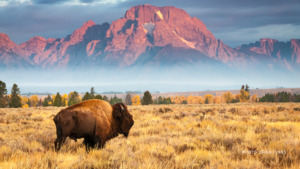For Immediate Release – March 10, 2020
Contacts:
Josh Osher, Western Watersheds Project, 406-830-3099; josh@westernwatersheds.org
Mary O’Brien, Grand Canyon Trust, 541-556-8801; mobrien@grandcanyontrust.org
HAMILTON, Mont. – In response to the Bureau of Land Management’s (BLM) call for comments on proposed revisions to the grazing regulations that affect 155 million acres of public lands, 18 conservation groups provided an entire template for making the agency’s program more environmentally sustainable and wildlife-friendly.
“The BLM needs to do a better job of following existing laws and strengthen the current regulations, rather than changing the rules to appease the livestock industry,” said Josh Osher, Policy Director for Western Watersheds Project. “In the alternative, we’ve revised the grazing regulations for them, to better address the needs of the natural ecosystems on public lands that the BLM is entrusted to manage.”
“In their advice for quality public comments, the BLM said, ‘Offer an alternative to your points of contention’. That’s what we did. And we want our alternative to be compared to their proposal in the upcoming Draft Environmental Impact Statement,” said Mary O’Brien, Utah Forests Program Director for Grand Canyon Trust. “
The group’s alternative includes new provisions for reclassifying certain currently grazed lands to being chiefly valuable for other uses such as wildlife habitat conservation, establishing a scientific basis for acceptable ‘rangeland studies,’ and increasing opportunities for the public to offer their ideas and information. The proposed revisions also allow permittees to voluntarily elect to take extended non-use of grazing leases for conservation purposes.
“Our alternative is reasonable,” O’Brien noted, “and offers clear efficiencies for the BLM, including a simple standard for conservative grazing, and voluntary removal of grazing from lands that cannot be grazed without causing the administrative headache of significant damage.”
The BLM is hoping to complete its grazing regulation revisions later this year.
###






